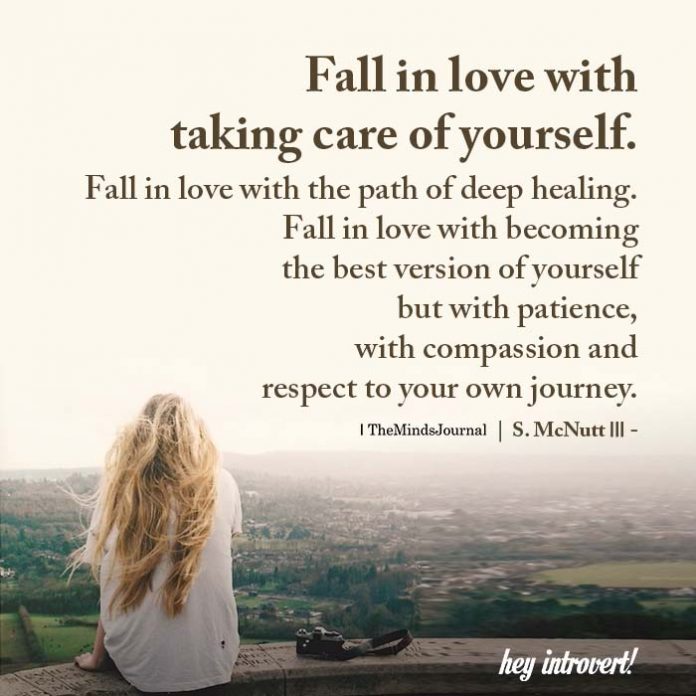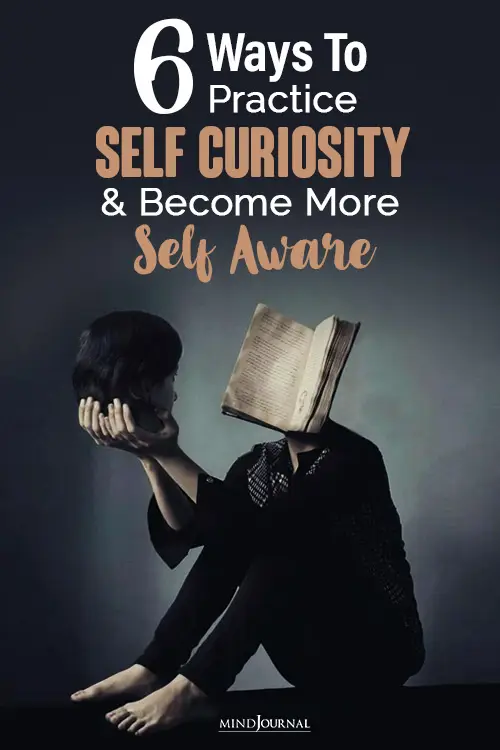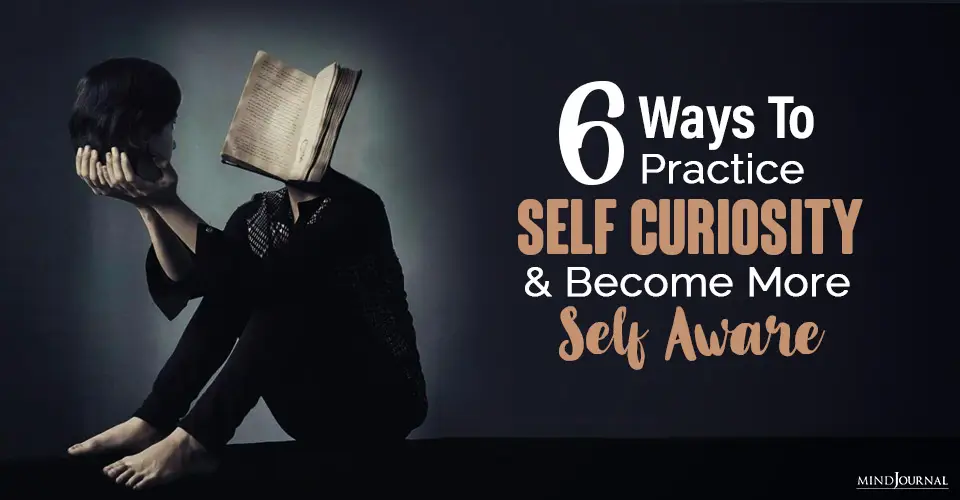Have you ever practiced self curiosity? Do you know how you can bring many positive changes in your life just by practicing this simple habit?
Self-knowledge leads to wonder, and wonder to curiosity and investigation, so that nothing interests people more than people, even if only one’s own person. — Alan Watts
Self curiosity is the first step towards becoming more self-aware.
A new year has officially started—and with it, new opportunities to become more emotionally healthy. To take care of our mental health. To grow and become our most authentic self. To heal our past, embrace our present, and consciously decide our future. But we can’t do any of those things if we don’t develop one key tool in our lives: self-awareness.
Self-awareness, as defined by Merriam-Webster, means to be “aware of one’s personality and individuality.” And, in my own words, self-awareness means to:
- Understand your own history, your past, and your upbringing
- Analyze how it shows up in your system of beliefs and emotional management
- Consciously “think” before you act, speak, and behave—as much as you can
- Filter and edit those aspects of yourself to live an emotionally healthier life
- Self-compassionately take responsibility for the way we connect and relate to others
It’s a path and a journey that doesn’t end. A skill that can (and should) be refined as often and as much as possible. And, to truly practice this skill, we must first be self-curious: about ourselves, our history, our culture, our society—and how all of these aspects have shaped who we are today.
Here are six ways to become more self-curious:
1. Try to understand why you do what you do.
This is particularly important when you notice yourself reacting instead of responding or repeating certain unhealthy behavioral patterns that you no longer wish to have. Self-compassionately ask yourself why you respond and behave the way you do, so you can further understand your areas of growth.

2. Don’t assume you know everything about yourself.
I once read a phrase that said: “If our brains were simple enough to be understood, we wouldn’t be smart enough to understand them.” As human beings, we are constantly evolving, growing, and transforming.
As such, we will (hopefully) continue to change and, consequently, we will continue to discover things about ourselves we weren’t aware of. It is in this wonder and curiosity that true transformation lies.
Read 10 Signs To Know That You Are Being True To Yourself
3. Ask questions to yourself constantly.
Open-ended questions can help you uncover truths about yourself and your needs. Constantly asking yourself “why,” “how,” “why not,” can help reveal powerful information about yourself.
And, as Oprah often quoted Maya Angelou as saying: “When you know better, you do better.”
4. Allow yourself to be amazed by your inner world.
Self-awareness and self-curiosity trace a roadmap towards your inner world—an inner journey that drives you closer to a path of authenticity. One that will reveal your most honest, authentic, vulnerable self. The person you’re meant to be.
Read How to Develop Self Awareness: 9 Must-See Tips for a Better Life
5. Set firm boundaries with judgment, guilt, and shame.
These sneaky characters love to pop up in this journey towards self-awareness. Unfortunately, their presence often plagues this self curiosity and stomps our emotional growth. Try, as much as possible, to set firm boundaries with them and (as often as you can) limit their access to entering your inner world.
6. Don’t be afraid of admitting to what you don’t know.
One of the most powerful self-discoveries comes from admitting to ourselves, “I don’t know.” Don’t fear this mystery or lack of information. On the contrary, embrace it so you can further reveal more hidden aspects of yourself.
Read Self-Awareness vs. Self-Consciousness: The Confidence Perspective
Self curiosity is a powerful tool that, if implemented self-compassionately, can give us direct access to our inner world. It can help us grow and transform into emotionally healthier human beings. And, consequently, it improves our lives and our relationships.
Written By Mariana Plata
Originally Appeared In Psychology Today
Practicing the art of self curiosity can help you have a better understanding of yourself. Understanding yourself is probably the best thing you can do, to live a meaningful and fulfilling life. Try it out, and see the difference for yourself!
If you want to know more about self curiosity, then check this video out below:










Leave a Reply
You must be logged in to post a comment.